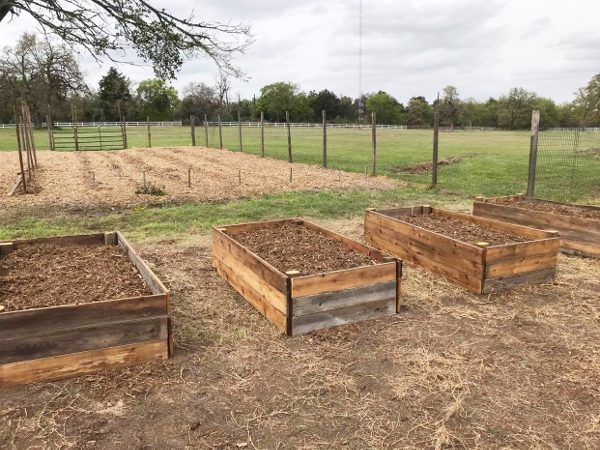
Jacksonville, Florida has a longer growing season than other areas of the country. This means that you can plant plants all year round. You should be vigilant about the weather because temperatures can change rapidly. Jacksonville's first frost usually occurs in December, and the last frost is in February. It is best to plant vegetables indoors six to eight week before the first frost.
Planting a Cycad can make your yard special. The coontie is an American palm species that has miniature fronds. This species is native and salt-tolerant, making it ideal for Jacksonville's environment. Jacksonville gardeners will also benefit from its many benefits. The only one native to North Florida, the coontie can tolerate cooler temperatures and a lack of direct sunlight, making it a great choice for this area.

Planting in Jacksonville, Florida is possible throughout the year. However be aware that it can be difficult due to the changing climate. The peak season in the region is nine-months long, so be aware of the timing of heat or frost. You can grow crops in the summer by using succession planting or short-season plants. Mulch can keep the soil cool and drip irrigation can help protect your plants from extreme heat and drought. Florida has mild winters. However, it is important to have flowers that bloom throughout the year.
It is more difficult to grow native plants in Jacksonville than it is in other areas. While many tropical and semi-tropical plants can withstand the heat and humidity, you can't be sure of their winter survival. Jacksonville's cooler climates are where native plants thrive. If you are planning a tropical garden, try to choose the same kind of plant as your homegrown flowers.
Coral bean is a low-maintenance native plant that attracts birds. This plant is usually grown in the city as a bloom, but can also be found in deciduous locations, reaching up to 20 ft. Your plants are your source for food, so it is crucial to keep this in mind when gardening. You will have a garden you love, no matter what season it is.

Coral bean, another popular native species, is also a very popular one. It attracts birds and is easy to maintain. Coral beans attract birds because of their red tubular flowers. The coral bean is a large plant in Jacksonville. In other areas, it grows as a deciduous shrub. It bears poisonous red flowers in the fall. Although the plant does not require any care, it is an excellent choice for a tropical yard.
FAQ
Which seeds should I start indoors and which ones should I avoid?
The best seed for starting indoors is a tomato seed. Tomatoes can be grown quickly and they bear fruit all year. Plant tomatoes in pots and be careful about putting them in the ground. Planting tomatoes too early can lead to soil drying out which could lead roots to rot. Also, be aware of diseases such as bacterial wilt, which can kill plants quickly.
How can you prepare the soil to grow vegetables in your garden?
Preparing soil to grow vegetables is very simple. The first step is to remove any weeds that may be in the area where your vegetable garden will be planted. Add organic matter such as leaves, composted manure or grass clippings, straw, wood chips, and then water. Finally, water well and wait until plants sprout.
Are pots possible to grow fruit trees?
Yes! Fruit trees can be grown in pots if you're short on space. You should make sure that your pot has drainage holes to keep excess moisture from rotting the tree. Make sure the pot is deep enough for the root ball to be held. This will stop the tree becoming stressed.
What is the difference between aquaponic gardening or hydroponic?
Hydroponic gardening makes use of nutrient-rich water rather than soil to grow plants. Aquaponics uses fish tanks to grow plants. It's like having your farm right in your home.
Statistics
- According to a survey from the National Gardening Association, upward of 18 million novice gardeners have picked up a shovel since 2020. (wsj.com)
- Today, 80 percent of all corn grown in North America is from GMO seed that is planted and sprayed with Roundup. - parkseed.com
- As the price of fruit and vegetables is expected to rise by 8% after Brexit, the idea of growing your own is now better than ever. (countryliving.com)
- Most tomatoes and peppers will take 6-8 weeks to reach transplant size so plan according to your climate! - ufseeds.com
External Links
How To
How to Grow Tomatoes
Tomatoes is one of the most loved vegetables today. They are easy and provide many benefits.
To tomatoes, full sun is required and soil should be rich and fertile.
Temperatures of 60 degrees Fahrenheit are the best for tomato plants
Tomatoes need plenty of air circulation. Use trellises and cages to increase airflow.
Tomatoes need regular irrigation. Use drip irrigation if possible.
Tomatoes don't like hot weather. Maintain soil temperatures below 80°F.
The nitrogen-rich fertilizer helps tomato plants thrive. Two weeks apart, apply 10 pounds 15-15-10 fertilizer.
Tomatoes require approximately 1 inch of water each week. This can be applied directly on the foliage or through drip systems.
Tomatoes may be susceptible to diseases such as bacterial wilt and blossom end rot. Make sure to drain the soil thoroughly and use fungicides.
Tomatoes are susceptible to pests such as aphids and whiteflies. Spray insecticidal shampoo on the undersides.
Tomatoes are versatile and delicious. Tomato sauce, salsa, relish, pickles and ketchup are just a few of the many uses for tomatoes.
Growing your own tomatoes is a rewarding experience.